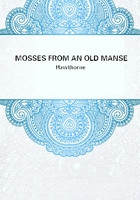
第61章 DROWNE'S WOODEN IMAGE(4)
"What sort of a fellow is this!" thought Copley. "A Yankee, and throw away the chance of making his fortune! He has gone mad; and thence has come this gleam of genius."There was still further proof of Drowne's lunacy, if credit were due to the rumor that he had been seen kneeling at the feet of the oaken lady, and gazing with a lover's passionate ardor into the face that his own hands had created. The bigots of the day hinted that it would be no matter of surprise if an evil spirit were allowed to enter this beautiful form, and seduce the carver to destruction.
The fame of the image spread far and wide. The inhabitants visited it so universally, that after a few days of exhibition there was hardly an old man or a child who had not become minutely familiar with its aspect. Even had the story of Drowne's wooden image ended here, its celebrity might have been prolonged for many years by the reminiscences of those who looked upon it in their childhood, and saw nothing else so beautiful in after life. But the town was now astounded by an event, the narrative of which has formed itself into one of the most singular legends that are yet to be met with in the traditionary chimney corners of the New England metropolis, where old men and women sit dreaming of the past, and wag their heads at the dreamers of the present and the future.
One fine morning, just before the departure of the Cynosure on her second voyage to Fayal, the commander of that gallant vessel was seen to issue from his residence in Hanover Street. He was stylishly dressed in a blue broadcloth coat, with gold lace at the seams and button-holes, an embroidered scarlet waistcoat, a triangular hat, with a loop and broad binding of gold, and wore a silver-hilted hanger at his side. But the good captain might have been arrayed in the robes of a prince or the rags of a beggar, without in either case attracting notice, while obscured by such a companion as now leaned on his arm. The people in the street started, rubbed their eyes, and either leaped aside from their path, or stood as if transfixed to wood or marble in astonishment.
"Do you see it?--do you see it?" cried one, with tremulous eagerness. "It is the very same!""The same?" answered another, who had arrived in town only the night before. "Who do you mean? I see only a sea-captain in his shoregoing clothes, and a young lady in a foreign habit, with a bunch of beautiful flowers in her hat. On my word, she is as fair and bright a damsel as my eyes have looked on this many a day!""Yes; the same!--the very same!" repeated the other. "Drowne's wooden image has come to life!"Here was a miracle indeed! Yet, illuminated by the sunshine, or darkened by the alternate shade of the houses, and with its garments fluttering lightly in the morning breeze, there passed the image along the street. It was exactly and minutely the shape, the garb, and the face which the towns-people had so recently thronged to see and admire. Not a rich flower upon her head, not a single leaf, but had had its prototype in Drowne's wooden workmanship, although now their fragile grace had become flexible, and was shaken by every footstep that the wearer made.
The broad gold chain upon the neck was identical with the one represented on the image, and glistened with the motion imparted by the rise and fall of the bosom which it decorated. A real diamond sparkled on her finger. In her right hand she bore a pearl and ebony fan, which she flourished with a fantastic and bewitching coquetry, that was likewise expressed in all her movements as well as in the style of her beauty and the attire that so well harmonized with it. The face with its brilliant depth of complexion had the same piquancy of mirthful mischief that was fixed upon the countenance of the image, but which was here varied and continually shifting, yet always essentially the same, like the sunny gleam upon a bubbling fountain. On the whole, there was something so airy and yet so real in the figure, and withal so perfectly did it represent Drowne's image, that people knew not whether to suppose the magic wood etherealized into a spirit or warmed and softened into an actual woman.
"One thing is certain," muttered a Puritan of the old stamp, "Drowne has sold himself to the devil; and doubtless this gay Captain Hunnewell is a party to the bargain.""And I," said a young man who overheard him, "would almost consent to be the third victim, for the liberty of saluting those lovely lips.""And so would I," said Copley, the painter, "for the privilege of taking her picture."The image, or the apparition, whichever it might be, still escorted by the bold captain, proceeded from Hanover Street through some of the cross lanes that make this portion of the town so intricate, to Ann Street, thence into Dock Square, and so downward to Drowne's shop, which stood just on the water's edge.
The crowd still followed, gathering volume as it rolled along.